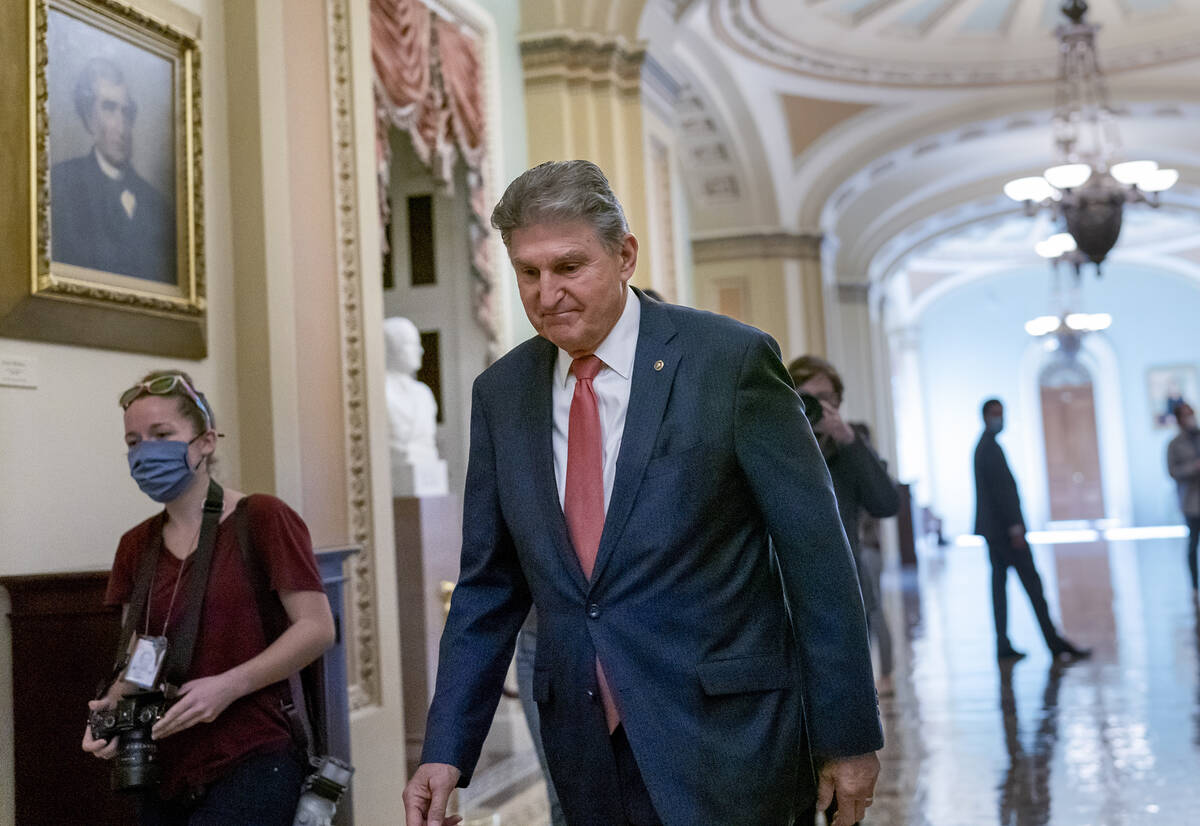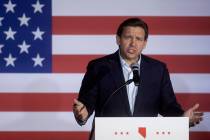EDITORIAL: What’s in a name? Dems rally behind ‘Inflation Reduction Act’
Nancy Pelosi once famously observed that Congress had to pass Obamacare “so that you can find out what’s in it.” That might be the most charitable thing to say about the hilariously named Inflation Reduction Act now percolating in the Senate.
Last week, Sen. Joe Manchin, D-W.Va., announced he had reached a deal with Senate Majority Leader Chuck Schumer on a much-scaled down version of the Build Back Better legislation that the former had essentially killed in the upper chamber.
At this point, however, the details surrounding the policy proposals contained in the bill remain murky. Suffice it to say, however, that it includes large tax hikes — ostensibly on corporations and the “rich” — a whole slew of green energy handouts and destructive price controls on drugs. It’s also supposed to reduce the deficit.
The latter raises a question: When was the last time Democrats applied monetary savings to the debt rather than spending it? If you think this bill represents a hawkish fiscal perspective, we’ve got beachfront property in Gabbs you might be interested in.
As for inflation, the Penn-Wharton Budget Model, which crunches the numbers on congressional legislative assumptions, concluded the bill would increase prices in the short term and that, overall, “The impact on inflation is statistically indistinguishable from zero.” But the name sure sounds good in political ads. Boundless cynicism, anyone?
What is known about the fine print, however, shouldn’t be encouraging. The proposal would shower subsidies on wealthy Americans who buy Teslas and jack up the IRS budget so agents could more aggressively go after middle-class taxpayers. It also includes billions in handouts to energy interests, both fossil fuel and green producers. Sen. Manchin, recall, represents coal-reliant West Virginia. “The legislation is so broad and has so much corporate welfare that it has been endorsed by — get this — Exxon Mobil and the Natural Resources Defense Council,” noted Robert Bryce for realclearenergy.org.
Sen. Manchin and the White House insist average Americans won’t see higher taxes under this proposal, in part thanks to the many wealth-transfer programs the bill enables. Yet higher corporate taxes will trickle down to consumers in the form of increased prices while lowering wages for workers.
Maya MacGuineas, president of the Committee for a Responsible Federal Budget, told The New York Times that the legislation was “a monumental improvement” over Build Back Better. We’ll see. But one thing’s for certain: Democrats want to pass this proposal as quickly as possible as a campaign-season antidote to the toxins they’ve poured on the economy for the past 20 months. And only then will we truly discover what’s actually in it.




























